When you work with a personal injury lawyer in Knoxville following an accident, the main goal is securing damages, but what does that actually mean? Let’s take a closer look at personal injury damages and the different categories they might fall into to give you a better understanding of what you can expect.
What Are Personal Injury Damages?
When your personal injury lawyer in Knoxville talks about damages, they are referring to the amount of money you may be awarded as compensation for your injuries and/or financial losses. Your lawyer will work with you to prove that the other party has breached their duty of care to you, resulting in harm. How much you are awarded will depend on the individual circumstances of your case and the extent of your injuries. There are also specific caps on the maximum damages award, which vary from state to state. In Tennessee, non-economic damages are capped at a maximum of $750,000, although this can be increased to $1 Million in the event of catastrophic injury. However, Tennessee does not cap economic damages. A personal injury lawyer in Knoxville can give you a better idea of what sort of damages you might be entitled to once they have reviewed your case in more detail.
Types of Personal Injury Damages
There are three different categories that personal injury damages will fall into. These categories are general, special, and punitive. General and special damages are the two most common types of damages. They are often referred to as non-economic and economic damages and are designed to compensate the victim for losses incurred as a result of their injury.
he third type of damages, punitive, is a little less common and is reserved for cases involving extreme recklessness. They are awarded in order to punish the defendant as a deterrent to repeat their behavior in the future. For this reason, you may also hear them referred to as ‘exemplary damages.’ One of the most common examples of punitive damages being awarded is when a drunk driver has injured the plaintiff. It is important to note that they will not apply to every personal injury lawsuit, so do ask your personal injury lawyer in Knoxville if you should pursue punitive damages or not. Courts will typically limit punitive damages to ten times the compensatory damages awarded in order to deter plaintiffs from seeking excessive punitive damages.
A Closer Look at Compensatory Damages
Now that we have summarized the three types of damages, let’s take a closer look at the more common compensatory damages - general and special. Let’s start with special damages, also referred to as economic damages. These are designed to cover monetary losses and costs directly relating to the accident. As noted above, Tennessee does not put a cap on this type of damages. Collecting receipts, invoices, and any other documents that will help a personal injury lawyer in Knoxville support your compensation claim is important. Some of the expenses that can fall under special damages will include the following:
- Medical Expenses, Ambulances & Rehabilitation Costs
- Predicted Future Medical Expenses
- Lost Wages, Including Loss of Future Earnings
- Reduced Earning Capacity
- Property Damage Costs (e.g., Vehicle Repairs)
- Mileage Costs For Medical Visits if Seeing Treatment Far From Home
- Rental Vehicle Costs
- Funeral Expenses
General or non-economic damages are a little trickier to calculate as they relate to less tangible damages that don’t carry a specific monetary value. These damages are subjective, but there are accepted methods that can be used to calculate the value. Your personal injury lawyer in Knoxville should be able to use these methods to calculate an estimated total of general damages to claim. Some examples of what will qualify for general damages include the following:
- Pain & Suffering
- Mental & Emotional Distress (e.g., Depression, Anxiety, Anger & Sleep Disturbance)
- Loss of Quality of Life
- Loss of Reputation
- Humiliation
- Psychological Trauma
- Permanent Disability
- Physical Disfigurement
- Loss of Companionship
- Loss of Consortium
Understanding Punitive Damages
As discussed above, your personal injury lawyer in Knoxville may urge you to pursue punitive damages if there has been extreme negligence in your case. This type of damage does not really depend on the injuries suffered. Instead, they focus on the defendant’s recklessness or negligence. The payment will still go to the plaintiff in the majority of cases, but it is not intended as compensation but more as a punishment for the defendant’s actions. It also serves as an example to others not to engage in acts of gross negligence. It also helps to discourage the defendant from repeating their behavior in the future. When it comes to determining if punitive damages should be awarded in a personal injury case, there are various factors that need to be considered, but the main ones are the level of negligence shown by the defendant and the severity of the damage caused. This damage could be both bodily injury and property damage.
If you have been injured and believe you have a valid lawsuit, talk to a personal injury lawyer in Knoxville, and they will help you secure any damages you may be owed.
--
Butler, Vines and Babb is a leading law firm in Knoxville, TN, with extensive litigation experience in Medical Malpractice Law, Birth Injury Law, Trucking Accident Law, Personal Injury Law, and Business Law. Contact us today at www.bvblaw.com or call 865-637-3531.
Please reference BV&B’s content disclaimer (located in this channel’s profile description) in regard to this shared content.

